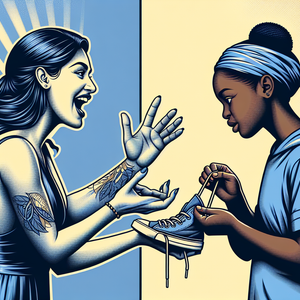From Oklahoma City to Beyond: Clay Bennett’s Influence on Local Economies

When Clay Bennett acquired the Seattle SuperSonics in 2006 and relocated the franchise to Oklahoma City, it marked a transformative moment for a city eager for professional sports. The Thunder quickly became a source of pride and unity for the community. However, the impact of Bennett's ownership transcended the basketball court, manifesting in several key areas:
Job Creation and Economic Development
The arrival of an NBA team often catalyzes job creation across various sectors, including hospitality, retail, and services. The Thunder's home games draw thousands of fans, leading to a surge in demand for services from nearby restaurants, hotels, and shops. A study conducted by the University of Central Oklahoma estimated that the Thunder generates approximately $140 million annually for the local economy, creating over 1,000 jobs directly and indirectly associated with the franchise. For instance, local businesses report increased sales on game days, with restaurants and bars often seeing a doubling of customers. Events hosted at the Chesapeake Energy Arena, including concerts and community gatherings, further contribute to the local employment landscape.
Revitalization of Downtown Oklahoma City
Bennett's ownership coincided with a broader urban development initiative in Oklahoma City, particularly with the construction of the Chesapeake Energy Arena, which has become a focal point for entertainment in the region. This project was pivotal in catalyzing urban renewal, leading to the establishment of new businesses, parks, and residential spaces in the downtown area. The Metropolitan Area Projects (MAPS) program, which Bennett supported, has driven significant investment into infrastructure, transforming downtown Oklahoma City into a vibrant hub for locals and tourists alike. The area now boasts a thriving arts district, diverse dining options, and improved public spaces, enhancing the city's appeal and increasing property values.
Community Engagement and Philanthropy
Bennett’s philosophy of ownership extends to community engagement, with the Thunder actively involved in charitable initiatives. The team's "Thunder Cares" program focuses on education, health, and youth development, making substantial contributions to local charities. These efforts underscore a commitment to social responsibility, resonating with fans and community members alike. For example, the Thunder collaborates with local schools to promote education and health awareness, demonstrating a tangible investment in the community's well-being. This focus on philanthropy not only strengthens the local economy but also fosters a sense of pride and loyalty among fans.
The Ripple Effect Beyond Oklahoma City
While the impact of Bennett's ownership is profoundly felt in Oklahoma City, the implications extend far beyond local borders. The success of the Thunder serves as a model for other franchises, illustrating how sports teams can drive economic growth and community development.
Inspiring Other Markets
Other cities seeking to attract or retain professional sports teams have observed Bennett's strategies, particularly his emphasis on community involvement and economic development. His approach has sparked discussions about the role of sports in urban planning and revitalization efforts nationwide. Cities are increasingly recognizing the potential of sports franchises to act as catalysts for economic and social progress.
National Economic Contributions
The NBA, as a league, boasts a considerable economic footprint, and Bennett’s role as an owner contributes to this larger narrative. The Thunder's success influences the league's overall financial ecosystem, including broadcasting deals, merchandise sales, and sponsorship agreements. The economic benefits derived from a prosperous franchise ripple outward, impacting various markets and industries across the country.
Clay Bennett's ownership of the Oklahoma City Thunder exemplifies the profound influence that a sports franchise can exert on local economies. Through job creation, urban revitalization, and community engagement, Bennett has not only transformed a basketball team but also enriched the very fabric of Oklahoma City. His legacy serves as a compelling case study for other sports franchises, illuminating the potential for sports to act as powerful catalysts for positive economic change. As the Thunder continues to thrive, so too does the promise of a vibrant, engaged community, benefiting from the synergy between sports and local economies. With his roots in business and a vision for community growth—having made his fortune primarily through investments in various industries—Bennett’s influence will likely continue to resonate both locally and nationally for years to come.
Sports Marketing Manager
NBA teams, sports marketing agencies, event management companies
Core Responsibilities
Develop and implement marketing campaigns to promote the sports franchise and its events.
Collaborate with community partners for promotional events and outreach initiatives.
Analyze market trends and fan engagement data to refine marketing strategies.
Required Skills
Strong understanding of digital marketing and social media platforms.
Proven experience in brand management within the sports industry.
Excellent communication and interpersonal skills.
Community Relations Coordinator
Professional sports teams, non-profit organizations, governmental agencies
Core Responsibilities
Coordinate community outreach programs and charitable initiatives associated with the sports franchise.
Foster relationships with local organizations, schools, and nonprofits to enhance community engagement.
Assist in planning and executing events that promote social responsibility and community wellness.
Required Skills
Excellent organizational and project management skills.
Strong verbal and written communication abilities, particularly for public speaking.
Experience in volunteer management and community service initiatives.
Economic Development Analyst
City government, economic development agencies, research institutions
Core Responsibilities
Assess the economic impact of sports teams and events on local communities.
Prepare reports and presentations for stakeholders regarding economic trends and forecasts.
Collaborate with city planners and businesses to devise strategies that leverage sports for economic growth.
Required Skills
Strong analytical skills and proficiency in economic modeling software.
Background in urban planning, economics, or public policy.
Ability to communicate complex economic data to a non-technical audience.
Event Operations Manager
Sports franchises, event management companies, concert promoters
Core Responsibilities
Oversee the planning and execution of events at sports venues, including games, concerts, and community gatherings.
Manage logistics such as vendor coordination, staffing, and venue setup.
Ensure compliance with safety regulations and provide a seamless experience for attendees.
Required Skills
Strong leadership and team management abilities.
Excellent problem-solving skills and attention to detail.
Experience with budget management and financial reporting.
Urban Planner with a Focus on Sports Facilities
City planning departments, architectural firms, consulting agencies focused on urban development
Core Responsibilities
Design and develop plans for urban spaces that incorporate sports facilities and promote community engagement.
Work on zoning, land-use policies, and community feedback to enhance local infrastructure.
Collaborate with developers, city officials, and sports teams to ensure projects meet community needs.
Required Skills
Proficiency in urban planning software and geographic information systems (GIS).
Strong communication skills for interacting with diverse community groups.
Knowledge of sustainable development practices and public policy.


